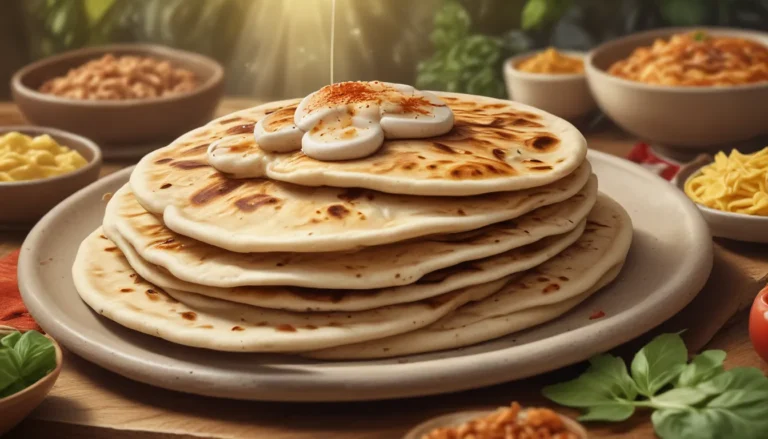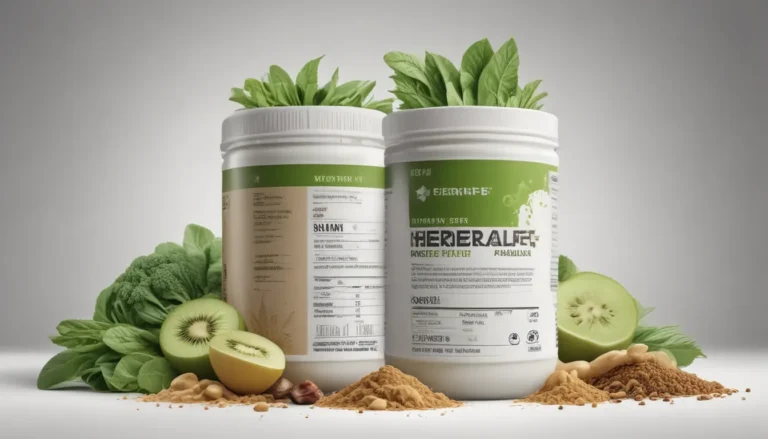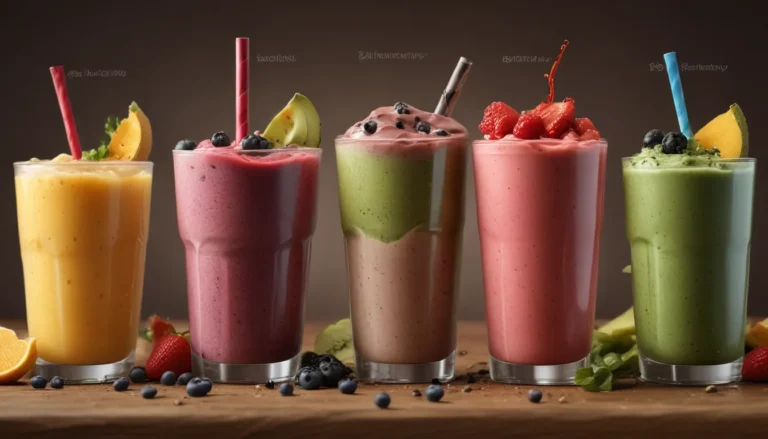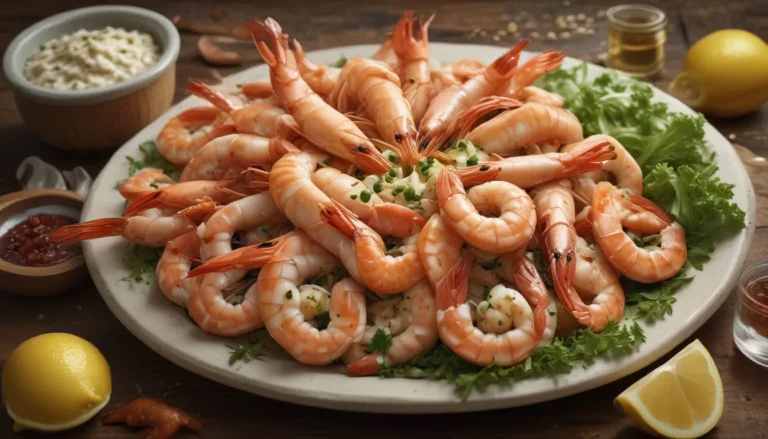The pictures in our articles might not always show exactly what the text is talking about. We use these images to make the article more interesting and eye-catching. They are there to add to the text, but not to replace it or show every detail.
Are you curious about bulghur? This versatile and nutritious whole grain has been a culinary staple for centuries, offering a nutty flavor and chewy texture that can enhance a variety of dishes. In this article, we will delve into 19 fascinating facts about bulghur that will not only expand your knowledge but also deepen your appreciation for this amazing ingredient. From its rich history and nutritional benefits to its culinary applications and storage tips, you will discover everything you need to know about bulghur right here. So, let's embark on a journey to explore the wonders of bulghur together!
Uncovering the Magic of Bulghur
1. A Whole Grain Wonder
Bulghur is a type of whole grain that is crafted from cracked wheat kernels, making it a wholesome and nutritious choice for your meals. It has been a dietary staple in many Middle Eastern and Mediterranean cuisines.
2. A Legacy of Centuries
With its origins rooted in the ancient Middle East, bulghur has a long and storied history of nourishing nomadic tribes with its long shelf life and high nutritional value. Its enduring legacy continues to make it a beloved grain worldwide.
3. The Nutrient Powerhouse
Packed with fiber, protein, iron, magnesium, zinc, vitamins B6, and E, bulghur is a nutritional powerhouse that can bolster your health and well-being with every bite.
4. A Rice Alternative
Bulghur serves as a fantastic substitute for rice in various culinary creations, offering a similar texture but with added nutritional benefits and a delightful nutty flavor.
The Marvels of Cooking with Bulghur
5. Quick and Easy Preparation
Cooking with bulghur is a breeze! Simply soak it in hot water or broth for a mere 10 minutes, and it will be ready to grace your salads, pilafs, or stuffings with its lovely presence.
6. A Salad Sensation
Bulghur shines in salads such as tabbouleh, where it lends a chewy texture and nutty taste that pairs seamlessly with fresh herbs, vegetables, and dressings for a delightful culinary experience.
7. Versatile in Every Dish
From soups and stews to stuffings and desserts, bulghur's versatility knows no bounds, making it a must-have ingredient in your culinary repertoire.
8. The Digestive Dynamo
Thanks to its fiber content, bulghur aids in digestion and promotes a healthy digestive system, ensuring smooth sailing for your gut health.
9. A GI Champion
With a low glycemic index, bulghur provides sustained energy without causing rapid spikes in blood sugar levels, making it an excellent choice for those seeking stable energy throughout the day.
Embracing the Health Benefits of Bulghur
10. Weight Management Support
The high fiber content in bulghur promotes satiety, helping you manage your weight by curbing overeating and supplying long-lasting energy to keep you feeling full and satisfied.
11. Plant-Based Protein Power
As a stellar source of plant-based protein, bulghur caters to the dietary needs of vegetarians and vegans, offering a valuable protein source for a balanced diet.
12. Gluten-Free Options Available
While traditional bulghur is made from wheat, gluten-free versions crafted from alternative grains like rice or millet cater to individuals with gluten intolerance or celiac disease, ensuring everyone can enjoy this fantastic grain.
13. Heart-Healthy Goodness
Low in fat and sodium, bulghur supports heart health by helping regulate blood pressure and reducing the risk of cardiovascular diseases, making it a heart-smart addition to your meals.
14. An Iron-Rich Gem
With its abundance of iron, bulghur contributes to the production of red blood cells and the transportation of oxygen in the body, making it a valuable nutrient source for vegetarians and vegans.
The Practical Benefits of Bulghur
15. Satisfying and Filling
Thanks to its high fiber content and chewy texture, bulghur keeps you feeling full and satisfied for extended periods, aiding in weight management and warding off unnecessary snacking.
16. Wallet-Friendly Eats
Affordable and economical, bulghur offers a budget-friendly option compared to other whole grains, providing excellent nutrition at a fraction of the cost.
17. An Energy Boost
Packed with carbohydrates, bulghur fuels your body with energy, supporting your daily activities and workouts with its nutritious properties.
18. Boosting Bone Health
Rich in minerals like magnesium and phosphorus, bulghur contributes to healthy bones and teeth, making it a vital component of a diet aimed at promoting bone strength and preventing osteoporosis.
19. A Sustainable Choice
Compared to other grains, bulghur's production requires less water and energy, making it an environmentally friendly and sustainable option that reduces the ecological footprint of your food choices.
In Closing
In conclusion, bulghur stands out as a versatile and nutritious grain with a rich history and a plethora of health benefits. Whether you seek to elevate your fiber intake, ramp up your protein consumption, or simply savor a delicious and hearty grain in your dishes, bulghur fits the bill perfectly. From traditional recipes like tabbouleh to modern interpretations in pilafs, soups, and salads, bulghur offers endless possibilities for culinary creativity. Its enduring popularity among food enthusiasts worldwide is a testament to its exceptional qualities and diverse applications in the kitchen.
FAQs
Q: What is bulghur?
A: Bulghur is a grain made from durum wheat that has been parboiled, dried, and then cracked into small pieces.
Q: Is bulghur gluten-free?
A: No, bulghur is not gluten-free as it is made from wheat. Those with gluten intolerance or celiac disease should avoid consuming bulghur.
Q: How is bulghur different from couscous?
A: While both bulghur and couscous are made from wheat, they undergo different processing methods. Bulghur is steamed, dried, and cracked, while couscous is made by rolling and shaping semolina wheat into tiny granules.
Q: How do I cook bulghur?
A: To cook bulghur, combine one part bulghur with two parts boiling water or broth. Let it simmer for about 15-20 minutes until tender, then fluff it with a fork before serving.
Q: Is bulghur suitable for a vegan or vegetarian diet?
A: Yes, bulghur is a great option for vegans and vegetarians as it is a plant-based source of protein and contains no animal products.
Experience the culinary magic of bulghur in your kitchen today, and unlock a world of delicious possibilities with this remarkable whole grain. Whether you're a seasoned chef or a novice cook, bulghur's versatility and nutritional benefits make it a fantastic addition to your pantry. Embrace the wonders of bulghur and elevate your meals with its unique texture, flavor, and health-promoting properties. Happy cooking and bon appétit!






